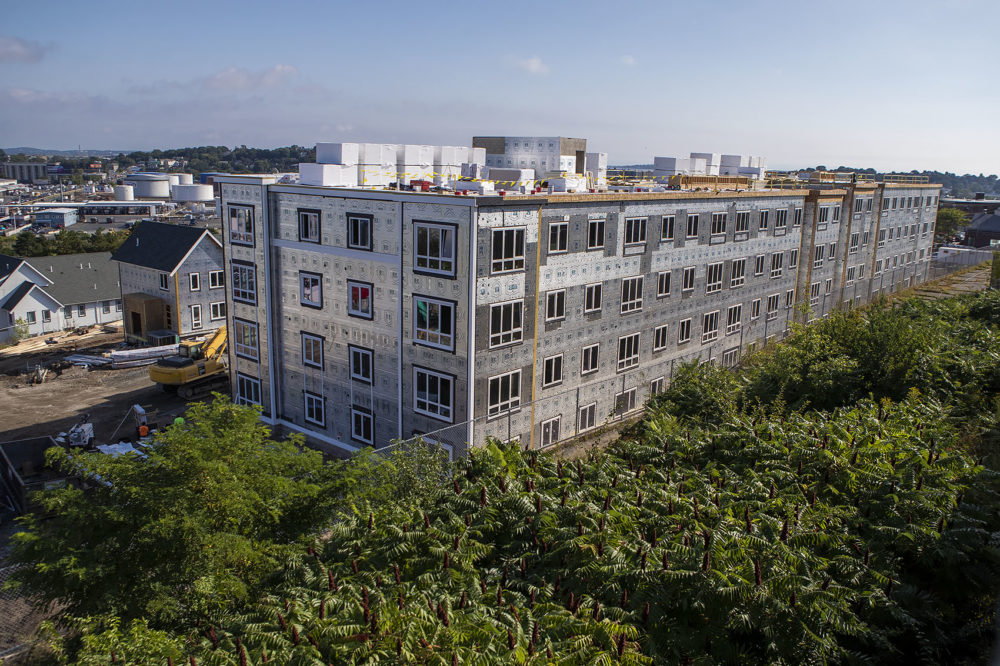There’s something awfully jarring about contemporary public land privatisations. When we’re side-stepping rough sleepers in the street, it seems incredible that a Labor government can’t find a way to use our land for housing. Some statistics: 26 per cent is the number of Victorian households in the medium-low income quintile; 2600 was the Australian-wide increase of “greatest need” public housing applicants; and 2600 is the number of hectares of Crown land going to market in Victoria. Instead of a mass sell-off, the Victorian government could seize the opportunity to increase the amount of “third market”, or quasi-private housing.
We could emulate the ACT’s Land Rent Scheme. The Land Rent Scheme is simple. Instead of buying a house and land package, you buy a house-only package. The government retains ownership of the land while the homeowner pays a small ground rent (2 per cent) on a secure 99-year lease.
For a typical house and land package that represents a 60 per cent discount on land costs – which translates into a smaller mortgage, a smaller deposit, and the opportunity to save on rental costs while paying off the house itself. The 3200 participating households in Canberra have saved $69 million on housing costs since its inception in 2008.
Academics like to refer to housing as a continuum stretching from private owner-occupation on freehold to public housing tenancies. A land rent scheme sits somewhere in the middle, providing quasi-private ownership for low-middle income earners: a first rung.
Alternatively, the government could transfer “surplus” public land into a Community Land Trust (CLT), a form of shared equity tenure long established in the US and UK. The premise of the CLT is, again, radically simple. The trust owns the land, residents own the buildings. Legally it is a “tenancy in common” between the home owner and the not-for-profit CLT entity. Or the CLT can provide land through 99-year leases with all the trappings of home ownership such as the opportunity to build, renovate, bequeath, or keep pets. When a CLT resident builds a home, they finance only the construction. When a CLT resident sells a home, they sell only the building and cannot make a capital gain on the value of the land. Capital gains to the land remain with the trust, and the taxpayer subsidy (i.e. the land) is retained in perpetuity.
As a CLT resident, it is true to say that you own the depreciating asset while the CLT owns the appreciating asset. However, it is a win-win. For the trust, there’s equity growth to be ploughed back into land acquisition or construction. For the resident, there’s an opportunity to build some asset wealth in the building itself. For those of us who dream only of secure, predictable housing costs and the right to install a better oven – it’s a perfectly acceptable trade-off.
For key workers vulnerable to inner-city price out, the CLT is an ideal solution. These are the teachers, ambos, nurses, cleaners and maintenance staff who work in the city but for whom there are no affordable family homes. It also has the benefit of freeing up the cheaper private rental stock in which middle-income homeowners languish while saving a deposit.
Many of the homes compulsorily acquired by the Linking Melbourne Authority (to make way for the defunct East-West link) are ideal candidates. The homes previously occupied by protesters on Bendigo Street, Collingwood; the Evo Apartments in Parkville; the old Home Hardware site on Alexandra Parade, Clifton Hill. Melbourne University researchers identified 255 suitable sites held by public agencies with the potential to host up to 30,000 homes. In the UK, there are now over 290 CLTs, half of which formed in the last two years. The largest US CLT has grown to 2000 homes thanks to its patiently expanding capital base.
In a recently published report entitled “Enabling Community Land Trusts in Australia”, the authors identify initial land cost as a key hurdle to establishing this type of tenure in Australia. This research was funded by local governments and philanthropists at the coal face of our housing crisis. There are community housing providers with shovel-ready plans to roll out CLT housing in Victoria. All they need is land.
Source: theage





Ставь в Лаки Джет и выводи деньги мгновенно — простой интерфейс и честная игра.
Explore the world of BitStarz, start with a generous $500 bonus and 180 FS, with over 4000 slot games. Access via working mirror site.
Casino mirror bypasses filters at work or school